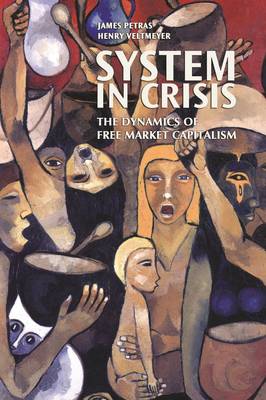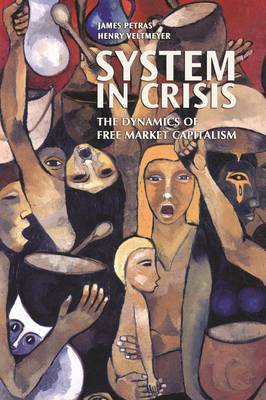
- Retrait gratuit dans votre magasin Club
- 7.000.000 titres dans notre catalogue
- Payer en toute sécurité
- Toujours un magasin près de chez vous
- Retrait gratuit dans votre magasin Club
- 7.000.000 titres dans notre catalogue
- Payer en toute sécurité
- Toujours un magasin près de chez vous
System in Crisis
The Dynamics of Free Market Capitalism
James Petras, Henry Veltmeyer
Livre broché | Anglais
34,95 €
+ 69 points
Format
Description
In the late 1960s the operating world capitalist system hit a snag, exposing cracks that went to its very foundations. At first, this crisis was viewed as part of a normal business cycle of capital accumulation in which markets become saturated. The reaction created a mass of unemployed workers, reduced purchasing power and consumption capacity which initiated a further downward cycle of disinvestment and recession. The efforts to revitalize the capitalist system included the restructuring of world production, new information-based technologies designed to revolutionize the structure of production, a new mode of capital accumulation and regulatory regime, and a program of policy reforms and structural adjustments.
By discussing the very cracks that neo-liberalism tries to disguise, James Petras and Henry Veltmeyer explain how these reactions attempt to prop up a system that continues to fail the global community. System in Crisis also examines the nature of the class divisions and the political repercussions of the anti-globalization movement. This analysis provides readers with a more general perspective on the broader anti-globalization movement and the possibilities for unifying the diverse forces of resistance and opposition to neo-liberalism, capitalism and imperialism-and the prospects for an alternative, more human, socialist form of development.Spécifications
Parties prenantes
- Auteur(s) :
- Editeur:
Contenu
- Nombre de pages :
- 240
- Langue:
- Anglais
Caractéristiques
- EAN:
- 9781552661154
- Date de parution :
- 01-01-03
- Format:
- Livre broché
- Format numérique:
- Trade paperback (VS)
- Dimensions :
- 150 mm x 226 mm
- Poids :
- 362 g







